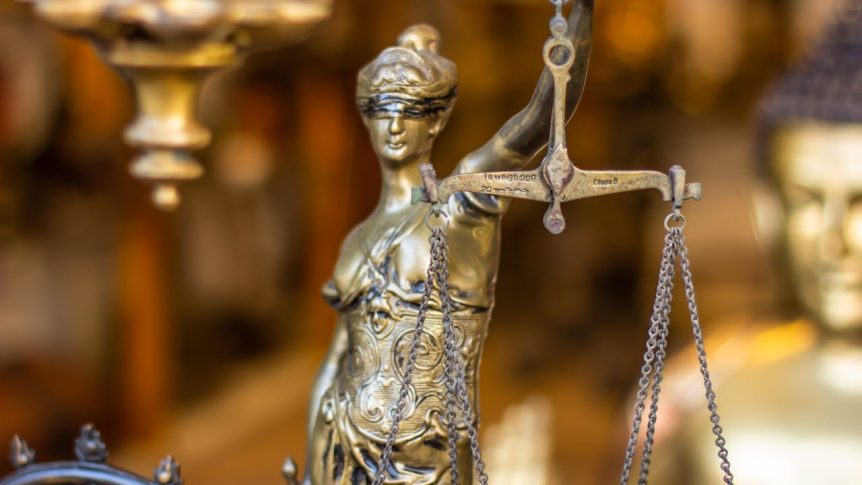يناشد مركز القاهرة لدراسات حقوق الإنسان السيد رئيس الجمهورية بإصدار قرار بالعفو عن كل المحكوم عليهم والمحبوسين وفقًا قانون التظاهر، والصحفيين، وكذلك المحكوم عليهم فى قضية المنظمات الحقوقية الدولية من المصريين والأمريكيين والألمان وغيرهم. ليس أُسوة فقط بالعفو الذى أصدره السيد رئيس الجمهورية في 23 سبتمبر 2015 بالعفو والإفراج عن 100 ممن تم سجنهم على خلفية ممارسة حقهم الدستورى في التظاهر السلمي، ولكن أيضًا أُسوة بالعفو الذى أصدره المجلس الأعلى للقوات المسلحة في عام 2011 –الذى كان السيد رئيس الجمهورية عضوًا به ومديرًا للمخابرات الحربية– وأُفرج بمقتضاه عن جهاديين صدر بحق بعضهم أحكامًا قضائية وتمت إدانتهم وسجنهم، وقد يكون بعضهم قد التحق –بعد الإفراج عنهم– مرة أخرى بمنظمات جهادية في سيناء وغيرها. جدير بالذكر أن المنظمات الحقوقية المصرية طالبت وقتها بإعادة محاكمة الآلاف من المتهمين في قضايا الإرهاب والمعتقلين القابعين في السجون والأقسام أمام محاكمات عادلة ونزيهة، يتم من خلالها الإفراج عن المعتقلين، ممن لم يتورطوا في أعمال عنف، ومعاقبة من يوجد ضده دليل إدانة.
إن مركز القاهرة لدراسات حقوق الإنسان إذ يرحب بقرار السيد رئيس الجمهورية بالعفو الصادر الشهر الماضي، إلا أنه يرى أن هذا إجراء غير كافي. حيث أن القرار وإن ساهم في رفع الظلم عن 100 شخص إلا أنه لم يعالج الخلل في نظام العدالة المصري الذي أدى إلى سجن الآلاف على خلفية قضايا واتهامات أخرى، وعدد كبير من الأشخاص الذين سُلبت حريتهم جراء فترات الحبس الاحتياطي المطولة دون إحالتهم للمحاكمة. فضلًا عن أن السيد رئيس الجمهورية سبق أن قال في إحدى اللقاءات التليفزيونية في شهر فبراير الماضي، أنه لا يُنكر وجود شباب أبرياء في السجون، وأنه سيعمل على الإفراج عنهم. كما أن وزارة الداخلية بررت تزايد الوفيات فى السجون باكتظاظها بعدد هائل من المسجونين والمحتجزين يتجاوز طاقتها الاستيعابية.
يُلاحظ مركز القاهرة لدراسات حقوق الإنسان أن العفو عن المسجونين السياسيين هو سمة أساسية في الانتقال من حقبة سياسية إلى أخرى. فقد تم الإفراج عن عدد من المساجين السياسيين عقب ثورة 23 يوليو 1952. كما قام الرئيس الراحل أنور السادات بالعفو عن عدد من سجناء الرأى والمساجين السياسيين حين تولى الحكم في عام 1970. وهكذا فعل الرئيس الأسبق حسني مبارك حين تولى الحكم في عام 1981. وسار على النهج نفسه المجلس الأعلى للقوات المسلحة حين تولى إدارة شئون البلاد في 2011 ولكنه أفرج عن عدد من الجهاديين متهمين في قضايا جنائية. والأمر نفسه قام به الرئيس السابق محمد مرسي حين تولى الحكم في عام 2012. إلا أن العفو عن سجناء رأي وسياسيين لم يحدث حين تولى رئيس الجمهورية المؤقت المستشار عدلي منصور، وكذلك الرئيس عبد الفتاح السيسي، الذى أصدر عفوًا محدودًا، وبعد توليه الرئاسة بعام، بينما تكتظ السجون بعشرات الآلاف.
في هذا الإطار يقدم مركز القاهرة لدراسات حقوق الانسان دراسة قانونية بصيغة 20 سؤال وجواب، عن العفو والآثار المترتبة عليه، وما إذا كان هناك شروط خاصة في العفو. وذلك من خلال دراسة لمواد الدستور والقانون وأحكام محكمة النقض.
توضح هذه الدراسة أيضًا عدم سلامة التبرير القائل بأن رئيس الجمهورية لا يمكنه استخدام صلاحياته الدستورية في إصدار عفو عن متهمين لا يزال المسار القضائى متواصلًا معهم، ولم ينته بعد. لقد مارس رئيس الجمهورية هذه الصلاحيات بالفعل الشهر الماضي، فيما يتصل بقضية “متظاهري الاتحادية”، التي لم يكن مسارها القضائي قد انتهى بعد، ولا يوجد مانع قانوني أو دستوري يحول دون ممارسته هذه الصلاحيات، وإصدار عفو عن المحكومين فى قضايا أخرى، وعلى رأسها قضية المنظمات الحقوقية والداعية للديمقراطية ٢٠١٢.
أخيرًا، إن العفو لن يُعالج الخلل الفادح الموجود في مؤسسة العدالة، إلا أنه إجراء قد يرفع جزء من الظلم الذي وقع على أعداد كبيرة من سجناء الرأى والنشطاء السياسيين والمدافعين عن حقوق الإنسان، الذين مارسوا حقوقهم المنصوص عليها في الدستور بشكل سلمي. ورغم ذلك جرى الحكم على بعضهم وفقًا لقانون التظاهر المعيب رقم 107 لسنة 2011، ولقانون عمره 101 عام، وهو قانون التجمهر رقم 10 لسنة 1914. أو بمقتضى نصوص مواد فضفاضة في قانون العقوبات. افتقدت محاكماتهم وإجراءات التحقيق معهم للمعايير الدنيا من المحاكمات العادلة والمنصفة، كما شهدت خروقات في سلامة الإجراءات، مما انتهى بهم الأمر في السجن لفترات مختلفة طبقًا لكل قضية. فضلًا عن مواطنين قادهم حظهم للمرور بجانب مظاهرة فتم القبض عليهم عشوائيًا، وصدرت ضدهم أيضًا أحكامًا تعسفية مماثلة.
20 سؤال وجواب حول العفو في النظام القضائي المصري
حول تعريف العفو، صوره وأهميته.
العفو الشامل (عن الجريمة): تفاصيله ونتائجه
ثانيا: العفو الخاص( عن العقوبة): تفاصيله ونتائجه
Share this Post

